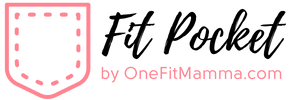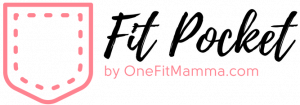Securing a job at Microsoft is highly competitive.
This article provides tips to stand out in your application process, helping you achieve your dream career at the tech giant.
Let's explore these strategies together.
Researching Microsoft
Before diving into your Microsoft career application, conducting thorough research is crucial. Here are vital aspects to consider when researching Microsoft:
Company Culture
- Understand Microsoft's core values and workplace culture.
- Familiarize yourself with the company's mission and vision.
Job Roles and Teams
- Explore the various job roles and departments within Microsoft.
- Identify positions that align with your skills and career goals.
Company News and Updates
- Stay informed about recent developments, innovations, and news related to Microsoft.
- Follow the company's official blog and social media channels.
Networking
- Connect with current or former Microsoft employees on LinkedIn.
- Attend industry events or webinars where Microsoft representatives might be present.
Industry Trends
- Stay updated on trends and challenges within the technology industry.
- Research how Microsoft is addressing these trends and contributing to the field.
Effective research will not only help you tailor your application but also demonstrate your genuine interest in joining the Microsoft team.
Career Opportunities: Microsoft's Diverse Range of Positions
Are you considering a career at Microsoft and wondering about the available positions?
Here's a list of some typical job roles and positions you can explore at Microsoft:
- Software Engineer - Develops and maintains software applications.
- Program Manager - Oversees project planning and execution.
- Data Scientist - Analyzes data to extract valuable insights.
- Business Development Manager - Expands business partnerships.
- Product Manager - Guides product development and strategy.
- Cloud Solution Architect - Designs cloud-based solutions.
- UX Designer - Creates user-friendly interfaces.
- Sales Representative - Promotes and sells Microsoft products.
- Technical Support Engineer - Assists customers with technical issues.
- Financial Analyst - Analyzes financial data and forecasts.
- Marketing Manager - Leads marketing campaigns and strategies.
- Human Resources Specialist - Manages HR functions.
- Security Analyst - Monitors and enhances cybersecurity.
- AI Research Scientist - Conducts research in artificial intelligence.
- Hardware Engineer - Designs and develops hardware components.
- DevOps Engineer - Streamlines development and operations.
- Legal Counsel - Provides legal guidance and support.
- Customer Success Manager - Ensures customer satisfaction.
- Supply Chain Analyst - Optimizes supply chain processes.
- Research Intern - Gains hands-on experience through internships.
These descriptions provide a brief overview of typical roles at Microsoft. Specific responsibilities may vary by position and department.
Where to Apply: Landing Your Career at Microsoft
When applying for a career at Microsoft, knowing where to submit your application is vital. Here are the primary channels:
- Microsoft Careers Website: Visit the official Microsoft Careers website to search and apply for positions.
- LinkedIn: Apply directly through LinkedIn's job portal, where Microsoft postings are featured.
- Recruitment Events and Campus Visits: Attend recruitment events or campus visits to connect with recruiters.
- Employee Referrals: Get referrals from Microsoft employees to boost your chances.
- Job Fairs and Conferences: Look for Microsoft at industry job fairs and conferences.
- Microsoft Partner Websites: Check Microsoft partner websites and industry job boards.
- Internship and Graduate Programs: Explore dedicated portals for Microsoft's internship and graduate programs.
Utilizing these channels enhances your chances of successfully applying for a career at Microsoft and finding the right opportunity.
Preparing Your Application
Preparing a well-crafted application is the first step to securing a Microsoft career.
Here are essential elements to consider when getting your application ready:
Resume Preparation
- Highlight your relevant skills and experiences.
- Quantify achievements where possible to showcase your impact.
Cover Letter Customization
- Craft a personalized cover letter for each application.
- Explain why you're a strong fit for the specific role and company.
Tailoring to Job Openings
- Customize your application materials to match the requirements of each job posting.
- Use keywords from the job description to make your application stand out.
LinkedIn Profile Enhancement
- Ensure your LinkedIn profile complements your application.
- Highlight your skills, endorsements, and professional network.
Attention to these details and application customization boosts your chances of impressing Microsoft's recruitment team.
Navigating the Interview Process
Navigating Microsoft's interview process is essential for securing your dream job. Here are crucial elements to consider:
Initial Screening and Assessments
- Understand the initial screening, including resume reviews and assessments.
- Ensure your resume aligns with the job description.
Phone and Video Interviews
- Prepare for phone and video interviews by practicing and testing your equipment.
- Familiarize yourself with Microsoft's virtual interview platform.
Technical Interviews
- Be ready for technical interviews, including coding challenges.
- Review relevant technical knowledge.
Behavioral and Situational Interviews
- Prepare for behavioral interviews by showcasing your skills and experiences.
- Use the STAR method for effective responses.
Demonstrating Passion for Microsoft
- Show enthusiasm and knowledge about Microsoft's products.
- Highlight alignment with the company's mission and values.
Mastering these interview stages will improve your chances of landing your desired role at Microsoft.
Showcasing Your Soft Skills
Demonstrating strong soft skills is vital when pursuing a career at Microsoft.
Here's a breakdown of the essential soft skills to showcase during your application and interviews:
Communication and Teamwork
- Emphasize your ability to collaborate effectively with diverse teams.
- Highlight clear and concise communication skills, both written and verbal.
Problem-Solving and Adaptability
- Describe instances where you've addressed challenges with creative solutions.
- Showcase your adaptability in dynamic work environments.
Leadership and Initiative
- Share experiences of taking the lead on projects or initiatives.
- Illustrate your ability to motivate and inspire others.
By emphasizing these soft skills, you'll demonstrate your readiness to excel in Microsoft's collaborative and innovative culture.
Benefits of Working at Microsoft
Working at Microsoft has many advantages beyond the reputation of a tech industry giant.
Here are some key benefits of pursuing a career at Microsoft:
- Innovation and Impact: Contribute to pioneering tech solutions with global reach.
- Professional Growth: Access training and diverse career opportunities.
- Work-Life Balance: Enjoy flexibility and wellness support.
- Diversity and Inclusion: Collaborate with a diverse team.
- Compensation and Benefits: Competitive pay and comprehensive benefits.
- Global Reach: Work across borders with a worldwide network.
- Innovation Culture: Foster a growth mindset with ample resources.
- Community Engagement: Contribute to social responsibility.
- Technology and Resources: Access cutting-edge tools.
- Global Impact: Address global challenges through technology.
Microsoft Salary Ranges
Microsoft provides competitive salaries that vary based on job role, location, and experience level.
Here are approximate salary ranges for common positions in the United States:
Software Engineer
- Entry-Level: $90,000 - $130,000
- Mid-Level: $130,000 - $170,000
- Senior-Level: $170,000 - $220,000
Program Manager
- Entry-Level: $95,000 - $140,000
- Mid-Level: $140,000 - $180,000
- Senior-Level: $180,000 - $230,000
Data Scientist
- Entry-Level: $100,000 - $140,000
- Mid-Level: $140,000 - $180,000
- Senior-Level: $180,000 - $230,000
Product Manager
- Entry-Level: $100,000 - $140,000
- Mid-Level: $140,000 - $180,000
- Senior-Level: $180,000 - $230,000
Sales Representative
- Entry-Level: $70,000 - $100,000 (base salary, with commission potential)
- Mid-Level: $100,000 - $140,000 (including commission)
- Senior-Level: $140,000 - $200,000+ (including commission)
Summing It Up
In conclusion, armed with the valuable insights provided in this article, you're well-prepared to navigate the competitive world of Microsoft careers.
By following these tips on crafting a tailored application and excelling in interviews, you can boost your chances of securing your desired role at Microsoft.
Additionally, showcasing your unique qualities is crucial for making a lasting impression on the recruitment team.






